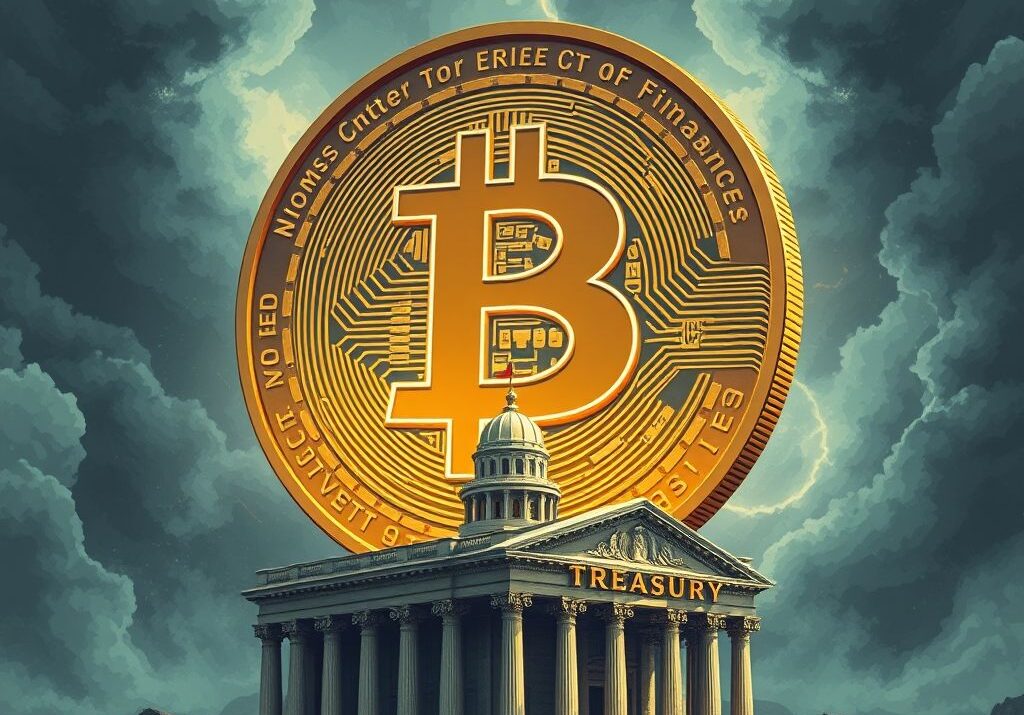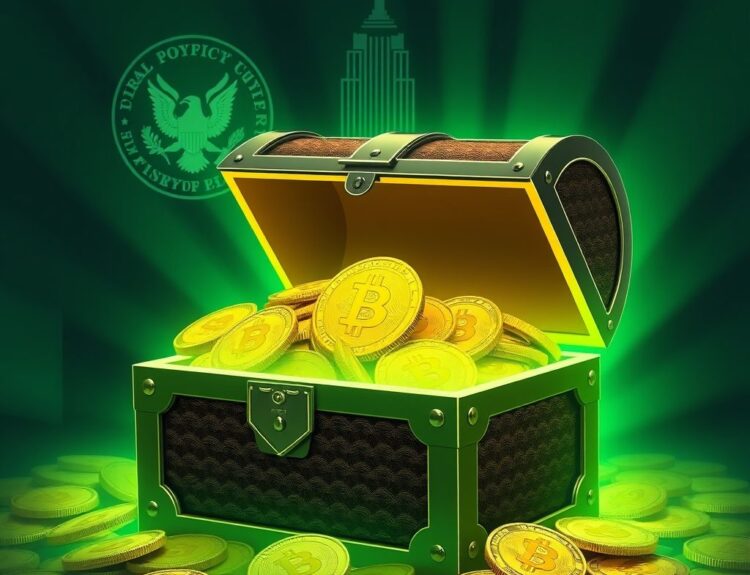Okay, so I stumbled across a fascinating article on Cointelegraph the other day with a pretty bold claim: “Bitcoin can absorb $30T US Treasury market — Bitwise CEO.” Naturally, that grabbed my attention. It’s not every day you hear someone suggest Bitcoin could rival one of the most established financial instruments on the planet.
The core idea isn’t just that Bitcoin is an alternative to gold, which we’ve heard before. It’s that Bitcoin is an alternative to all savings instruments, including those supposedly safe and secure government bonds. That’s a much bigger sandbox.
Now, before we all jump to conclusions about Bitcoin replacing the entire US Treasury market, let’s unpack this a bit. It’s a thought experiment, and a provocative one at that. But beneath the headline, there are some interesting points worth considering.
One angle to think about is the current macroeconomic landscape. We’re living in a world where inflation is a persistent concern, and traditional safe havens like bonds sometimes struggle to keep up. According to a recent report by the Congressional Budget Office, the federal debt held by the public is projected to reach 116% of GDP by 2034. That’s… a lot. It makes you wonder if diversifying beyond traditional assets might be a smart move.
Bitcoin, with its limited supply of 21 million coins, presents a different kind of store of value. The scarcity model is a key part of its appeal. As more institutions and individuals explore Bitcoin as a hedge against inflation and monetary debasement, the demand could, theoretically, surge. A study by Cambridge Centre for Alternative Finance indicates that the number of crypto users globally has been on a consistent rise, hinting at growing adoption.
Of course, the volatility of Bitcoin is the elephant in the room. It’s not for the faint of heart. While the long-term trend has been upwards, there are significant price swings along the way. This volatility makes it difficult for many investors to see Bitcoin as a true store of value, especially compared to the relative stability of government bonds. Data from CoinMarketCap clearly illustrates these peaks and valleys in Bitcoin’s price history.
But what if we look beyond just price stability? What if we consider the potential for Bitcoin to provide financial freedom and access to a global, decentralized financial system? These are factors that traditional savings instruments simply can’t offer.
Bitwise CEO, Matt Hougan, isn’t just talking about replacing the entire Treasury market overnight. He’s highlighting the potential for Bitcoin to become a significant player in the global savings landscape. Whether it absorbs the entire $30 trillion? That’s a huge question mark. But the conversation itself is valuable.
Key Takeaways:
- Beyond Gold: Think of Bitcoin as competing with all savings instruments, not just gold.
- Scarcity Matters: Bitcoin’s limited supply is a key driver of its potential value.
- Volatility is a Reality: Bitcoin’s price swings need to be factored into any investment strategy.
- Financial Freedom: Bitcoin offers unique benefits in terms of decentralization and accessibility.
- Long-Term Potential: While replacing the Treasury market is a stretch, Bitcoin’s potential as a significant store of value is undeniable.
FAQ: Bitcoin & the US Treasury Market
- Is Bitcoin actually going to replace the US Treasury market? Highly unlikely in the near future. This is more of a thought experiment exploring Bitcoin’s potential as a store of value.
- What makes Bitcoin a potential competitor to government bonds? Its limited supply and potential to act as a hedge against inflation.
- What are the main risks of investing in Bitcoin? Volatility, regulatory uncertainty, and security risks.
- Is Bitcoin a safe investment? It depends on your risk tolerance and investment horizon. It’s crucial to do your research and understand the risks before investing.
- How does Bitcoin’s scarcity affect its value? The limited supply of 21 million coins creates scarcity, which can drive up demand and price if adoption continues to grow.
- What are the benefits of a decentralized financial system? Greater financial freedom, accessibility, and potentially lower fees.
- How does inflation impact the value of traditional savings instruments like bonds? Inflation can erode the real value of bonds if the interest rate doesn’t keep pace with inflation.
- What role do institutional investors play in Bitcoin’s growth? Increased institutional adoption can provide more liquidity and stability to the Bitcoin market.
- How is the US Treasury market different from Bitcoin? The US Treasury market is backed by the US government and is considered a relatively safe haven, while Bitcoin is a decentralized, digital asset with no central authority.
- Where can I learn more about Bitcoin and the US Treasury market? Reputable sources include CoinDesk, CoinTelegraph, the US Department of the Treasury, and academic research papers on cryptocurrency.






